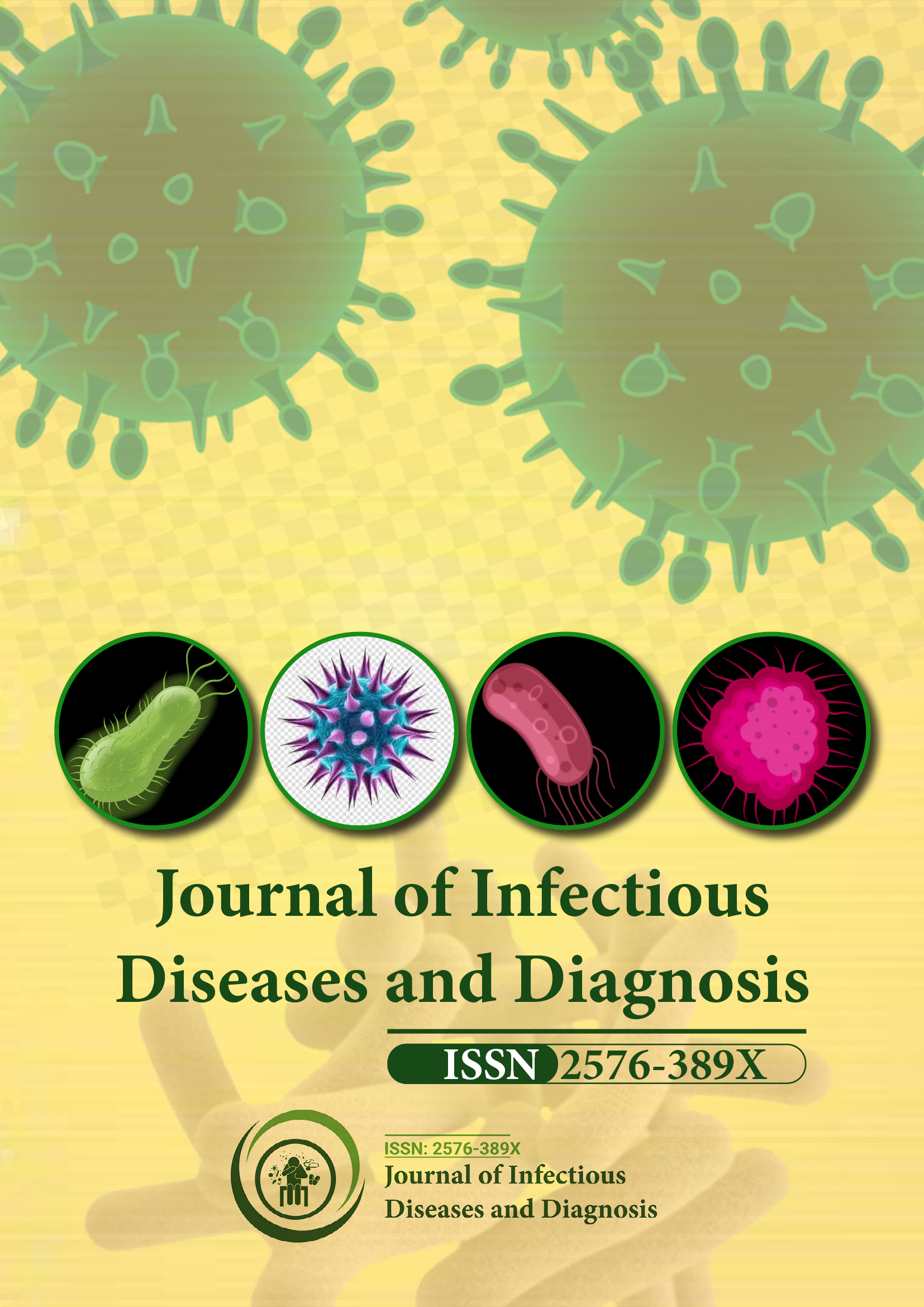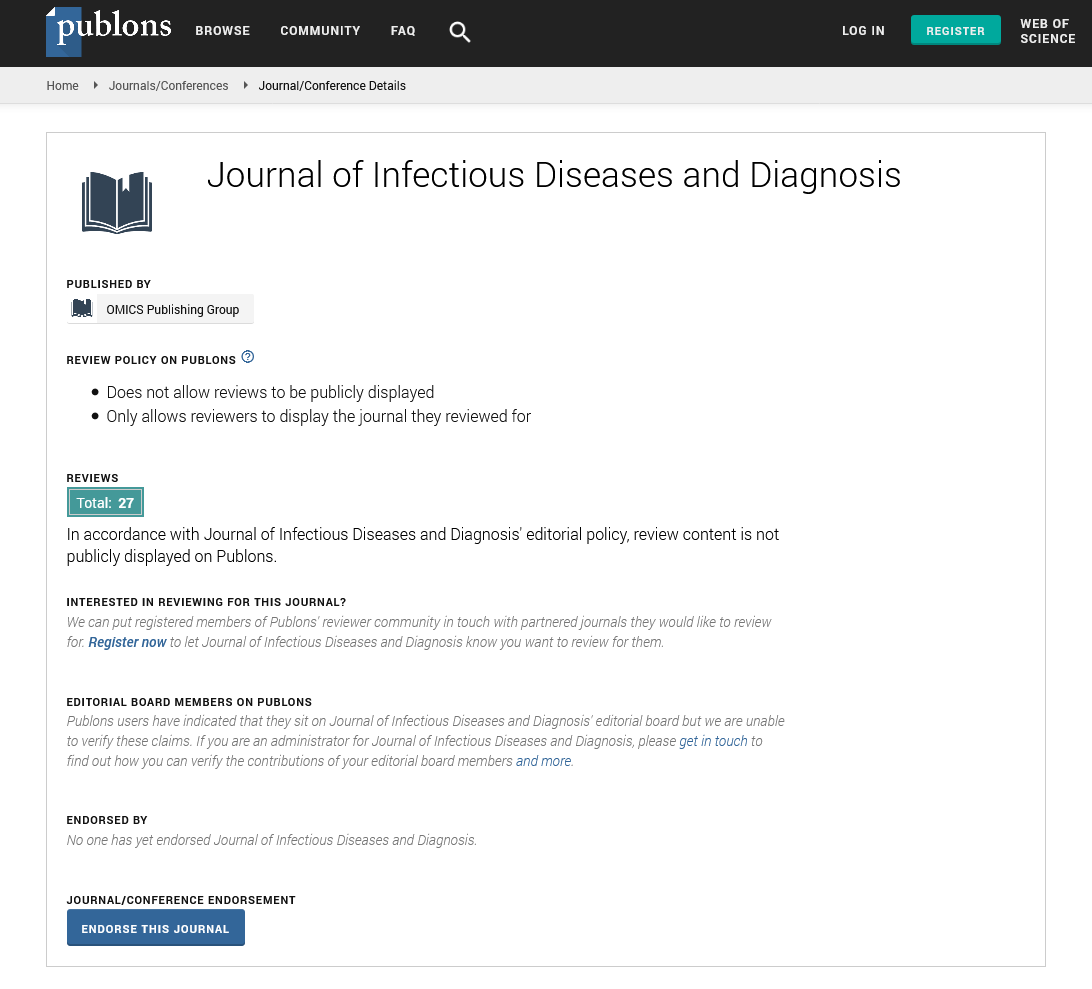Indexed In
- RefSeek
- Hamdard University
- EBSCO A-Z
- Publons
- Euro Pub
- Google Scholar
Useful Links
Share This Page
Journal Flyer

Open Access Journals
- Agri and Aquaculture
- Biochemistry
- Bioinformatics & Systems Biology
- Business & Management
- Chemistry
- Clinical Sciences
- Engineering
- Food & Nutrition
- General Science
- Genetics & Molecular Biology
- Immunology & Microbiology
- Medical Sciences
- Neuroscience & Psychology
- Nursing & Health Care
- Pharmaceutical Sciences
Dengue Cerebellitis in an adult male: A case report & literature review
12th Euro-Global Conference on Infectious Diseases
October 05-06, 2020 | Webinar
Kathrine Bernadette Apostol
Institute of Neurological Sciences, Philippines
Scientific Tracks Abstracts: J Infect Dis Diagn
Abstract:
Introduction: Purely cerebellar syndromes complicating dengue fever in an adult patient with risk factors for stroke are rare. Our literature review identified only 5 other similar cases, all from tropical countries. Case This is a case of a 36-year old hypertensive and dyslipidemic Filipino male treated as a case of dengue fever. On the fourth day of his illness, he suddenly presented with cerebellar symptoms. Neuroimaging done was negative. His dyslipidemia and hypertension were managed accordingly with medications. His dengue was managed with IV fluid hydration and serial full blood count monitoring. All of his neurologic symptoms resolved spontaneously within 2 weeks. Discussion: Dengue fever can manifest with neurological features ranging from 0.5% to 21% of in-hospital cases. In multiple case reports, patients with dengue cerebellar syndrome all recover spontaneously without permanent neurological sequelae. Five out of the six known cases, including that of our patient had unremarkable neuroimaging findings. The exact pathology of neurological syndromes in dengue fever are yet to be established. However, due to the positive serum Immunoglobulin M (IgM) of the subjects, we can conclude that this may be immune mediated. Another possible pathology is the direct invasion of the virus. However, the predilection for the cerebellum is not yet known. Conclusion: Physicians should be made aware of such complications as dengue is epidemic in our setting. Since dengue causes a hyper-coagulable state with a higher risk for stroke, stroke should still be ruled out by neuroimaging.
Biography :
Kathrine Bernadette Apostol is a 1st year Neurology resident at The Medical City, Pasig City, Philippines. She first became interested in Neurology during her second year in medical school and has pursued her dream of becoming a neurologist in her home country. Her mentor and co-author, Dr Artemio Roxas Jr, is a practicing neurologist and a former president of the Philippine Neurological Association. He is an active consultant at The Medical City as well as an esteemed researcher who has authored and co-authored over a hundred research papers published both locally and Internationally.

